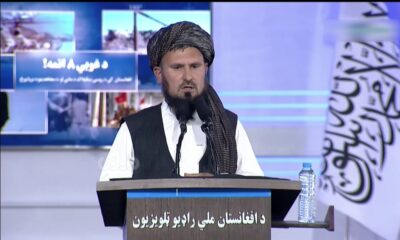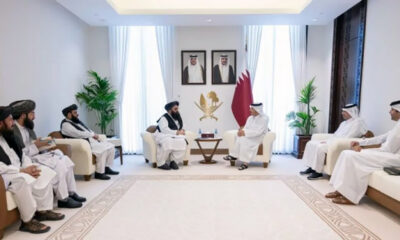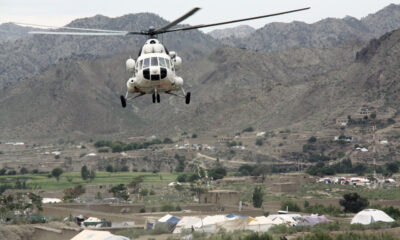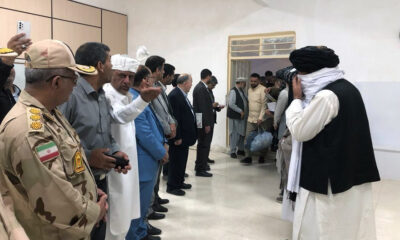Latest News
U.N. readies for more displaced Afghans after troop withdrawal
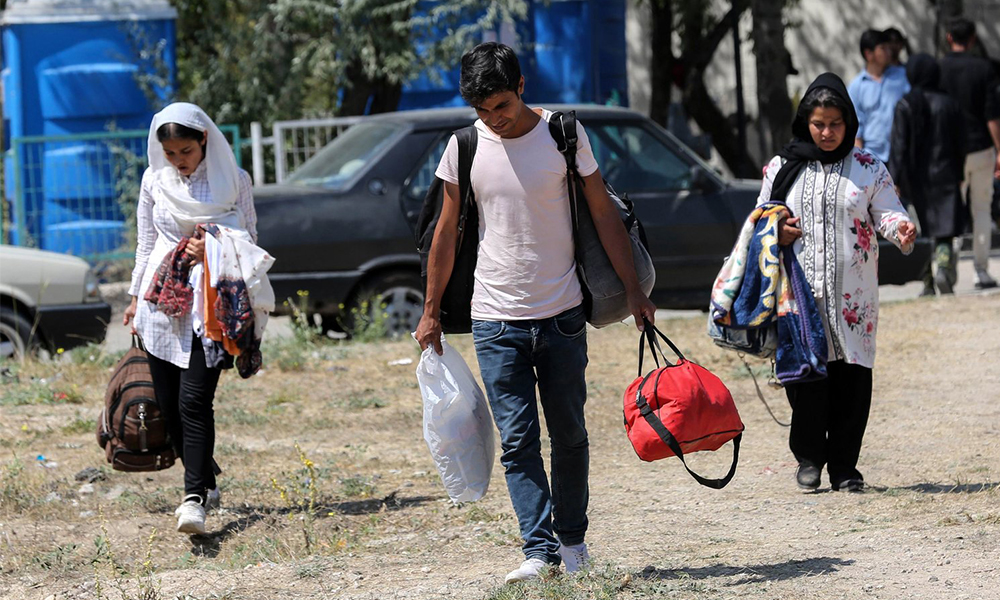
The United Nations is preparing for a likely further displacement of civilians in Afghanistan after U.S. and international troops leave the country in September, U.N. refugee chief Filippo Grandi told Reuters on Monday.
Violence has been rising as foreign forces begin withdrawing and efforts to broker a peace settlement between the Afghan government and insurgent Taliban have slowed.
Grandi pointed to a deadly attack last week on an international demining organization in northern Afghanistan, which killed 10 people.
“This is a tragic indicator of the type of violence that may be resurfacing in Afghanistan and with the withdrawal of the international troops this is possibly or likely going to become worse,” Grandi said.
“Therefore we are doing contingency planning inside the country for further displacement, in the neighboring countries in case people might cross borders,” he said, without offering details of those plans.
There are currently some 2.5 million registered refugees from Afghanistan globally, while another 4.8 million have been displaced within the country, according to the U.N. refugee agency UNHCR, which Grandi heads.
After 20 years, the United States has started a withdrawal of its remaining 2,500 troops in Afghanistan and aims to be completely out of the country by Sept. 11. Around 7,000 non-U.S. forces from mainly NATO countries – along with Australia, New Zealand and Georgia – are also planning to leave by Sept. 11.
Grandi said strong international support was needed for peace talks between the Afghan government and the Taliban.
“It’s political action that should substitute conflict but, of course, the risk (of further displacement) is there and we need to be prepared,” he added.
U.S.-backed Afghan forces toppled the Taliban in late 2001 for refusing to hand over al Qaeda leader Osama bin Laden after the September 11, 2001, attacks on the United States.
“What’s needed is a high level of economic support for Afghanistan humanitarian assistance to maximize the chance the Afghan authorities have to stabilize the situation,” U.N. aid chief Mark Lowcock told Reuters on Monday.
“There’s been very good and constructive outreach from the Biden administration, from the White House down, and we have actually had very productive discussions with them on that,” added Lowcock, who steps down from his role this month.
Earlier this month, the United States announced more than $266 million in new humanitarian aid for Afghanistan, bringing to nearly $3.9 billion the total amount of such aid it has provided since 2002.
Some 18.4 million people, almost half the country’s population, need humanitarian help, according to the United, Nations, which has appealed for $1.3 billion in funding for 2021. So far it has only received about 23% of that.
Lowcock said that until a few years ago there had been a lot of international attention in Afghanistan. That has “dissipated and weakened and that is a sort of problem when it comes to drawing attention to the needs of Afghanistan and getting support for them.”
Latest News
Civil war devastated Afghans more than the Soviet invasion, says Fitrat
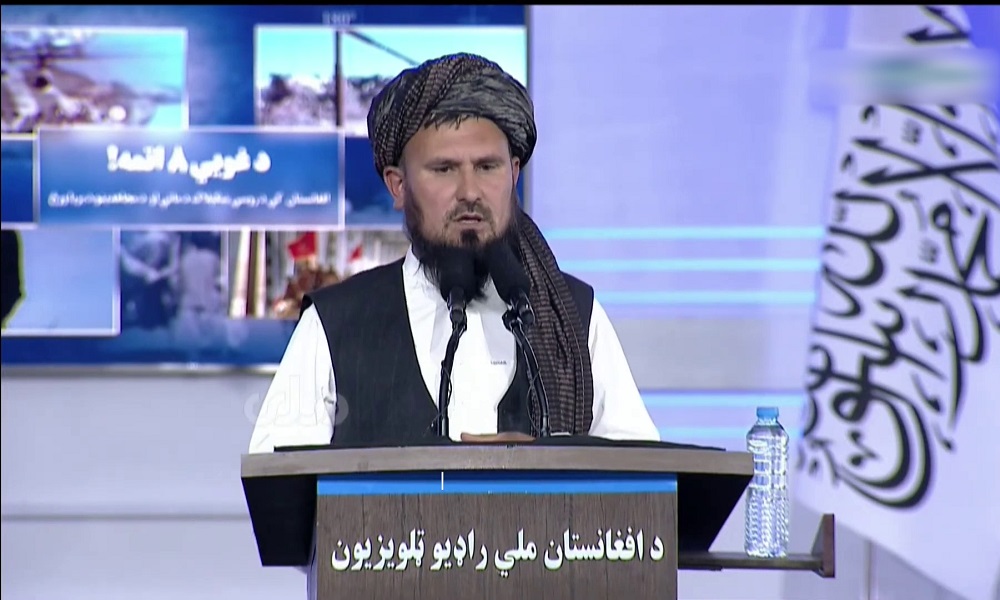
The civil war inflicted greater harm on the people of Afghanistan than the Soviet invasion, Fasihuddin Fitrat, Chief of the Army Staff of the Islamic Emirate, said on Monday
“The Soviet Red Army invasion did not make the Afghan people as miserable as the civil wars and power struggles made,” he said at a ceremony marking the 33rd anniversary of the mujahideen’s victory against the former Soviet-backed regime.
Fitrat warned that if someone is thinking of occupying Afghanistan using those who have fled the country, the Afghan people are ready to fight against them even if takes thousands of years.
“No matter how they impose war on the people of Afghanistan, the people have the courage and heroism,” he said. “Their honor will never allow them to be controlled by someone else. They will fight against them. They have fought for four and a half decades and are ready to fight for thousands more. If anyone thinks of occupying our country, they will fight against them.”
Acting Minister of Borders and Tribal Affairs, Alhaji Mullah Noorullah Noori also stressed that Afghanistan will soon will compete with other countries in political, economic and security sectors.
“The day will come when Afghanistan will compete with the world’s major countries in every field, politically, economically, security,” he said.
Acting Minister of Information and Culture Khairullah Khairkhwa called on the officials of the Islamic Emirate to refrain from “power worship,” warning that it would lead to the collapse of the government.
“If, God forbid, we revive the past and there is power worship here again and we try to increase our influence, the regime will collapse and the people will become divided,” he said.
At the ceremony, the Chief of Staff of Army also stressed the dignified return of refugees from neighboring countries, adding that humiliating them is unacceptable for the Islamic Emirate.
Latest News
Qatar’s Prime Minister meets with Afghanistan’s foreign minister
According to Gulf Times, the two officials reviewed the latest developments in Afghanistan and discussed ways to support the Afghan people.
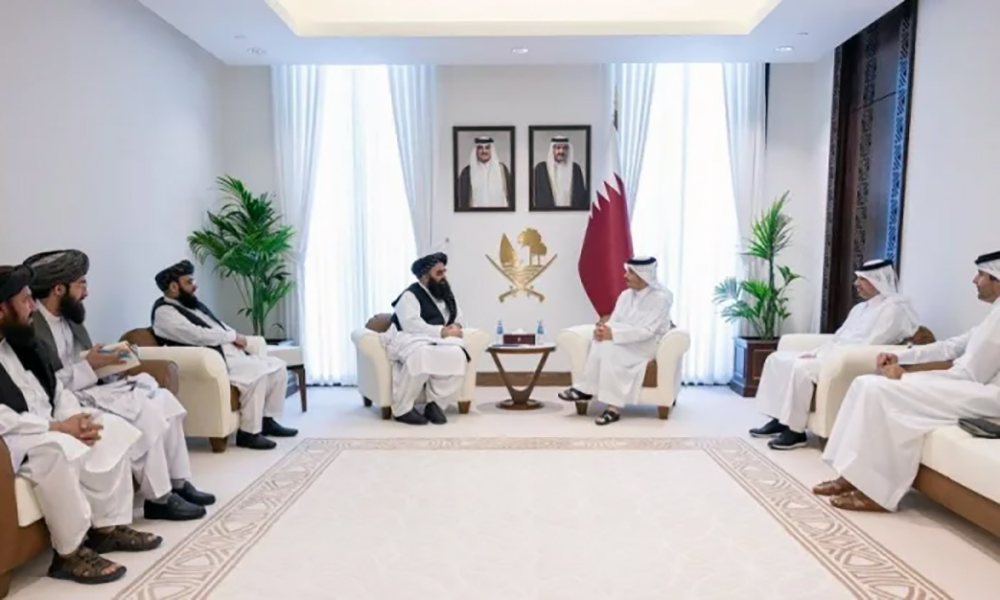
Qatar’s Prime Minister and Minister of Foreign Affairs Sheikh Mohammed bin Abdulrahman bin Jassim Al-Thani met with Afghanistan’s Acting Minister of Foreign Affairs Amir Khan Muttaqi who is currently visiting the country.
According to Gulf Times, the two officials reviewed the latest developments in Afghanistan and discussed ways to support the Afghan people.
Al-Thani emphasized the State of Qatar’s unwavering support for all segments of the Afghan people and its continued efforts to achieve security, stability, prosperity, and a dignified life in Afghanistan.
A source told Ariana News that Muttaqi arrived in Qatar on Sunday. No further details on his trip were given.
Latest News
WFP air services in Afghanistan may be suspended due to funding crisis
According to WFP, the organization urgently needs $10.5 million in funding to continue its relief flights in 2025.
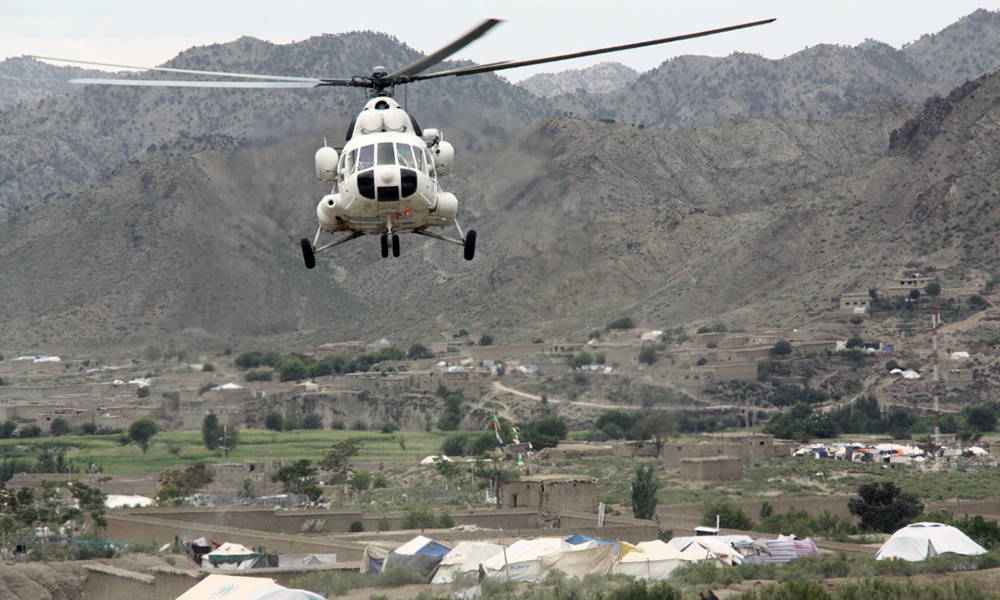
The UN’s World Food Program (WFP) in Afghanistan has announced the possible suspension of its air services in the country due to a severe shortage of funding.
WFP is one of the largest humanitarian organizations in Afghanistan and the air services have played a vital role in transporting humanitarian aid, especially to areas difficult to reach by land.
In a message posted on X, the WFP explained that in the past, when roads were blocked, air services were the only way to deliver aid to remote areas of Afghanistan. This aid included food, medicine, and other essential items that are essential for the survival of millions of people in need in Afghanistan.
According to WFP, the organization urgently needs $10.5 million in funding to continue its relief flights in 2025.
In addition, the WFP stated that humanitarian needs in Afghanistan continue to increase and millions of people across the country are dependent on humanitarian assistance.
WFP stated that if air services are stopped, it will become very difficult, if not impossible, to deliver vital aid to areas that are not accessible by road.
-

 Latest News5 days ago
Latest News5 days agoAWCC activates new site in Nangarhar’s Kuz Kunar district
-

 Latest News5 days ago
Latest News5 days agoTarig Ali Bakheet and Japan’s Deputy Foreign Minister discuss Afghanistan’s situation
-

 Business5 days ago
Business5 days agoPakistan’s deputy PM discusses Trans-Afghan Railway Line project with Uzbek FM
-
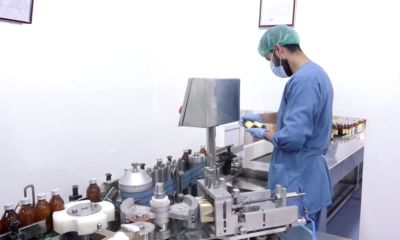
 Latest News3 days ago
Latest News3 days agoAfghanistan’s medicine output reaches 900 types: Pharma Union
-

 Latest News4 days ago
Latest News4 days agoAfghan delegation to participate in Iran’s international expo
-
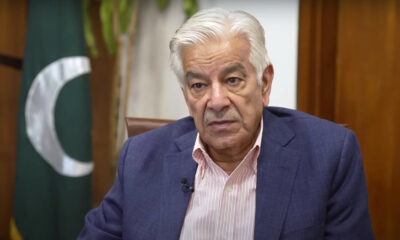
 Latest News4 days ago
Latest News4 days agoTerrorist attacks in Pakistan originate from Afghanistan: Khawaja Asif
-

 Latest News4 days ago
Latest News4 days agoWFP appeals for $25 million to help support Afghan returnees amid humanitarian crisis
-
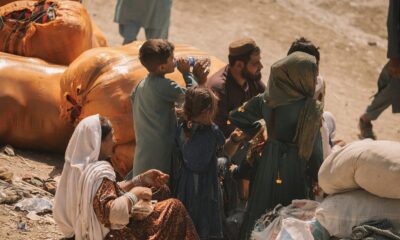
 Latest News4 days ago
Latest News4 days agoRegistered Afghan refugees must return by June 30 or face deportation: Pakistani official


